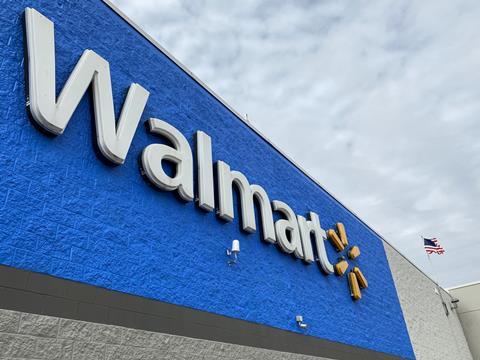
A lot of noise was generated last year when Walmart made a ‘momentous’ announcement that sent ripples through the RFID industry. As one of the world’s leading retailers, it revealed its ambitious plan to expand the utilization of RFID technology beyond retail apparel to encompass other critical retail areas. This expansion included home and entertainment, targeting a wide range of products.
By imposing a mandate on its suppliers, Walmart required them to implement RFID tagging for home goods, sporting goods, electronics, and toys by September 2022. This strategic move underscored the company’s confidence in the effectiveness of RFID technology and its potential to revolutionize inventory management across diverse retail sectors.
It is now nearly a year after the RFID mandate was issued and the question arises: has it actually spurred RFID adoption in retail beyond apparel? Our friends at IDTechEx, a leading market research firm with over 20 years of experience in RFID, asked one of its senior technology analysts, Dr. Yu-Han Chang, to investigate.
The answer lies in evaluating the growth and impact of RFID technology in these newly targeted departments, she writes. The retail industry witnessed the widespread adoption of UHF RFID technology, initially focused on apparel and footwear segments. According to IDTechEx, over 72% of UHF RFID tags were deployed in these two segments combined last year and accounted for the largest market share in terms of tag volume as well as market value in the UHF sector.
Retailers have been adopting a standardized approach. While apparel and footwear continue to lead the UHF RFID market, other retail sectors are experiencing notable growth. Players within Walmart’s supply chain, in particular, have reported a strong double-digit increase in demand as a direct result of the mandate, according to Dr. Chang. This positive response aligns closely with IDTechEx’s forecast regarding the adoption of UHF RFID technology in other retail sectors.
The research indicates this is an evolving landscape, with the growth in these sectors outpacing previous expectations. The success of Walmart’s mandate has played a significant role in stimulating adoption and fostering increased demand. Retailers across various sectors are recognizing the benefits of UHF RFID technology and leveraging it to enhance their operations, says IDTechEx.
Despite the growing momentum for item-level tagging in other retail sectors, there are still significant challenges to overcome in implementing large-scale RFID systems. One of the main obstacles is the cost associated with tagging each individual item.
Additionally, sustainability issues arise as increased use of RFID tags can contribute to electronic waste if proper recycling measures are not in place. Technical and implementation challenges also exist, particularly when tagging items containing liquids or metals, which can interfere with RFID signals and impact the readability of tags.
In addition, the ecosystem for large-scale RFID implementation in other retail sectors (beyond apparel and footwear) is not yet fully mature, which adds complexity to the adoption process. These challenges highlight the need for ongoing innovation and collaboration within the RFID industry to address cost, sustainability, and technical limitations and to foster the development of a robust and efficient ecosystem to support widespread implementation in the retail sector, Dr. Chang believes.
The latest version of the RFID market research report, ‘RFID Forecasts, Players and Opportunities 2023-2033’, provides a comprehensive overview covering passive RFID (for UHF, HF and LF frequencies), battery-assisted passive, active RFID, and chipless RFID technologies. To find out more about this IDTechEx report, visit www.IDTechEx.com/RFID
This article was created in collaboration with AIPIA (the Active and Intelligent Packaging Industry Association). For a full update on active and intelligent packaging, come along to the AIPIA World Congress (co-organized by Packaging Europe) in Amsterdam on 14-15 November. The only smart packaging event covering the entire technology spectrum, the World Congress is a meeting place for the global active and intelligent packaging industry where brand owners, innovators, and other stakeholders can network and see and discuss the latest trends and innovations. Register to attend here.













No comments yet